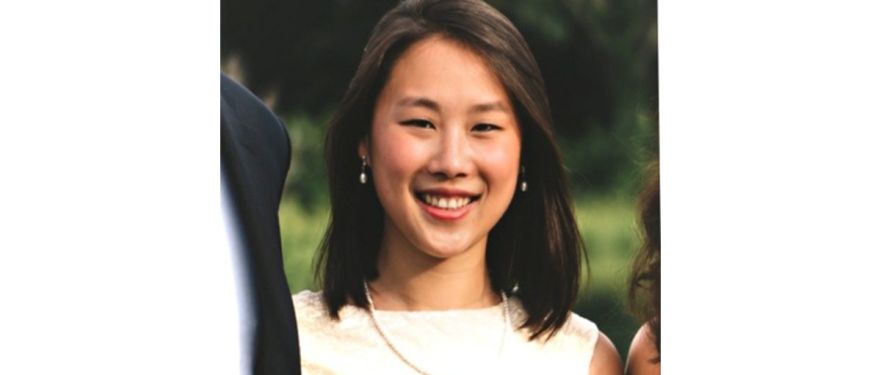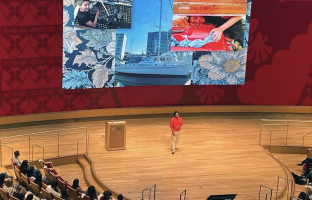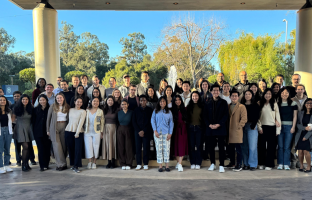Ming Min Hui (MBA 2015) had a very specific intention in mind when she applied to HBS. After an early career in investment banking and corporate strategy, “I wanted to apply my business skills to something more fulfilling and mission-driven,” Ming says. “A lot of my MBA experience was about figuring out what that mission should be.”
Although her mother is an artist and Ming had majored in English as an undergraduate, “I didn’t think the arts was necessarily a career path for an MBA.” But as a member of the HBS Arts Society, she began to think otherwise. Finding the HBS Leadership Fellows Program job posting at Boston Ballet gave her a chance to explore it as a reality. Executive Director, Max Hodges (MBA 2010), was seeking a Chief of Staff with a business background and MBA skills in strategy and quantitative analytics.
They agreed to talk, and the meeting, says Ming, “went fantastically! Max perfectly understood where I was coming from. She spoke genuinely about how fulfilling it was to find a leadership position in the arts with her business background, and helped me envision how I could do the same.” With their compatibility established, Ming applied to the position. “We both recognized that Leadership Fellows is great for this kind of work – everyone benefits. The organization gets financial support from HBS for the first-year salary, and a pipeline of talent they wouldn’t have access to themselves. Students get a guaranteed competitive salary plus programmatic support: training, a cohort of classmates with similar experiences. Plus, the one-year commitment gives you a safety net if you discover the experience is not for you.”
Measurable accomplishments and a leadership mindset
As Chief of Staff working closely with the Executive Director, Ming assumed leadership responsibilities in three areas: 1) project management of institutional strategic priorities, including revamping the Boston Ballet website, an effort coordinated among staff and executive leaders across the organization; 2) support for board reporting, analytics, and executive communications; and 3) strategy work, contributing to the institution’s five-year plans and analyzing business cases for new investments.
“As Chief of Staff at Boston Ballet, I have a lot of indirect management,” Ming explains. “I don’t have my own team per se, but I have a lot of responsibilities touching many teams.” Together, they made considerable impact, both for the institution and toward Ming’s maturation as a leader.
Within her fellowship year, Ming and her colleagues successfully overhauled the website and the infrastructure behind it, launching the new site at the end of summer, 2016. “Overnight,” Ming says, “we experienced a complete channel shift in terms of ticket purchases, school registrations and donations; with a corresponding lift in revenues.”
On a personal level, Ming experienced a shift herself. “A lot of the point of HBS is learning to change your mindset,” she says. “You think of the whole system, so you change the way you measure success from your own output to how you enable others. At Boston Ballet, I was able to make the transition from an individual contributor mindset to a manager mindset.”
Ming has stayed with Boston Ballet. Now in her fourth year with the organization, she doesn't “see a reason to leave any time soon. Boston Ballet is a complex and fascinating organization, there’s still plenty to learn.” And her role provides a practical ramp to her potential future. “It’s a great training ground for becoming an Executive Director myself if I ever decide to take the leap in that direction.”





.png&w=80&h=80)

.png&w=80&h=80)